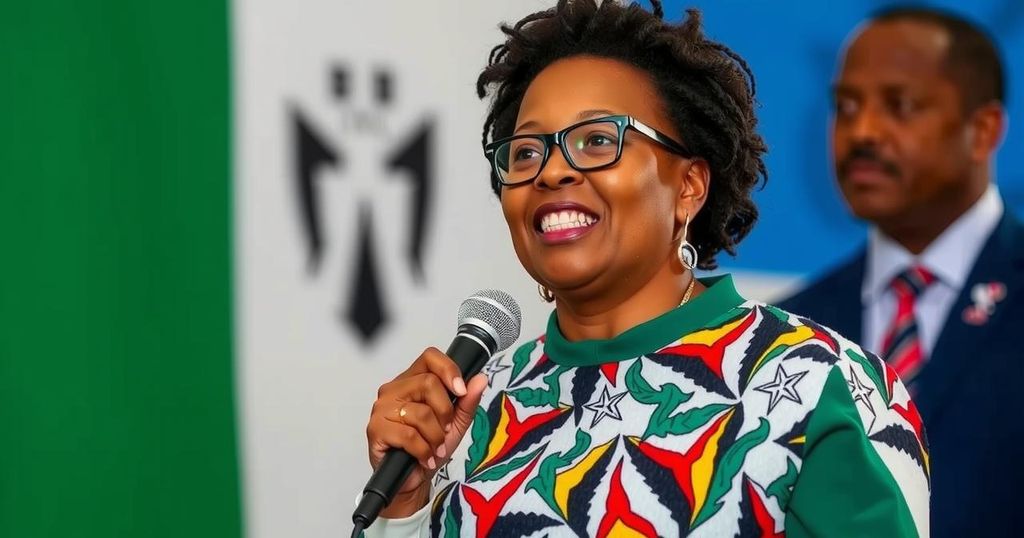Namibia has elected its first female leader, Vice President Netumbo Nandi-Ndaitwah, who won with 57% of the votes. The election faced significant challenges, including technical problems that prompted opposition parties to contest the results. SWAPO retained its majority in Parliament, despite criticism from the opposition, which plans to challenge the election’s legitimacy in court.
Namibia has marked a significant milestone in its political history by electing its first female leader, Vice President Netumbo Nandi-Ndaitwah. Declared the winner of the presidential election held last week, Nandi-Ndaitwah achieved a decisive victory, garnering 57% of the votes. This election was particularly crucial for the SWAPO party, which has maintained power since the country’s independence from apartheid South Africa in 1990, marking 34 years of leadership.
Despite her victory, the election was not without controversy. Several opposition parties have questioned the legitimacy of the results, citing technical difficulties that plagued the voting process, including shortages of ballot papers, which led to an extension of the voting period until Saturday. Critics argue that these issues disenfranchised many voters and plan to challenge the election results in court.
SWAPO also secured a majority in the parliamentary elections, keeping pace with its longstanding dominance within Namibian politics, unlike neighboring countries where ruling parties have recently lost ground. Nandi-Ndaitwah, who was previously part of Namibia’s guerilla movement for independence in the 1970s, now prepares to take office as the fifth president of Namibia in the post-apartheid era.
In response to her win, SWAPO’s social media account proclaimed, “SWAPO Wins. Netumbo Wins. Namibia Wins. Now Hard Work.” While the party celebrated, notable opposition figures, including Panduleni Itula from the Independent Patriots for Change, criticized the electoral process and received 25% of the votes themselves. Itula’s party also achieved the second-highest number of seats in Parliament, pledging to contest the electoral results citing the unconstitutional nature of the voting extension.
Namibia is known for being one of Africa’s more stable democracies, despite its sparse population of only three million across a land area larger than Germany. The nation’s democratic processes, while challenged in this election, continue to evolve following nearly three decades of independence.
The recent presidential election in Namibia marks a historic moment as it results in the election of the country’s first female leader, Netumbo Nandi-Ndaitwah. Her election reflects the ongoing dynamics within the SWAPO party, which has been the ruling party since Namibia’s independence from apartheid South Africa in 1990. The electorate faced various challenges during the voting process, leading to significant contention and disputes regarding the election’s legitimacy, particularly from opposition parties who have raised concerns over technical issues that may have affected voter turnout.
In conclusion, Namibia’s presidential election signifies both a historic victory for female leadership and a contentious moment in the country’s electoral integrity. While Vice President Netumbo Nandi-Ndaitwah’s election as the first female president is a noteworthy achievement, the opposition’s challenges suggest that concerns regarding the electoral process may influence the nation’s future political landscape. As the situation unfolds, the stability and democratic processes of Namibia remain under scrutiny.
Original Source: abcnews.go.com






